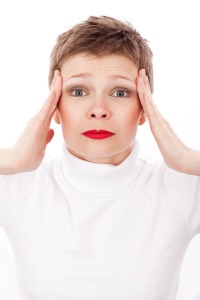Do you have endometriosis? Do you have endo-fatigue? Let’s run a little test:
- Are you exhausted right now?
- Do you frequently wake up tired after a ‘good night’s sleep’?
- Do you frequently feel you have no ‘spare’ energy despite resting a lot?
Did you say yes to at least one of the questions? Let me guess. Yes. My bet is you’re tired pretty much all the time.
Exhausted
Worn out
Knackered
Pooped
Zonked
Threadbare
Running on empty. All the time.
When was the last time you experienced that zest for life which compelled you to an activity whose only goal would be to ‘burn off’ that excess energy? When was the last time you experienced the joy of living?

If you have endometriosis, you’re likely to feel tired no matter how much you rest. The reasons are multiple, complex and not always clearly understood. If all of this sounds unhappily familiar, you’re not alone.
Although there is no perfect fix, here are 10 ways to deal with endo-fatigue, tiredness caused by endometriosis, that could help you manage your condition.
- CHECK YOUR HEALTH
There are a number of conditions associated with endometriosis (as well as any other health conditions you may have) that can contribute to your overall feeling of tiredness.
- Anaemia/ iron-deficiency: When my iron level got a low as eight, I could barely walk; I felt ‘totally spent’, despite sleeping for more than 12 hours each night. Anaemia and low iron levels are not a symptom of endometriosis as such, but a side effect that can happen due to excessive bleeding. A simple blood test is all that’s required to assess your blood count and iron levels. Become familiar with what works for you; different people have different tolerance levels. Prescription iron tablets are much stronger than over-the-counter supplements. Be sure to always check with your doctor before undertaking any treatment.
- Thyroid function: According to thyroid-info, “42% of the women with endometriosis had underactive thyroid glands, versus approximately 5% in the general population.” Underactive thyroid can cause an array of symptoms that include tiredness, depression, being sensitive to the cold, muscle aches, reduced sex drive and irregular / heavy periods. Pregnancy complications can also occur. Ask your GP for a thyroid test. Appropriate medication will help you manage your symptoms.
- Blood sugar: Blood sugar levels if too low can make you feel tired. Get this checked out by your doctor.
Fact or myth: Adrenal fatigue is a cause of Endo-Fatigue.
Myth: Adrenal fatigue is not actually recognised as a medical condition and although adrenal cortex may not produce enough hormones, this is quite rare and therefore unlikely to play a part in Endo-Fatigue for most of us. Source: (New Scientist, October 16, Dead On Your Feet?)
Fact or myth: Vitamin supplements, particularly Vitamin B can help with fatigue.
Unsure: There is no evidence that Vitamin B supplements will boost your energy levels unless you’re deficient. Source: (New Scientist, October 16, Dead On Your Feet?)
There may be other medical causes of tiredness that you may wish to research.
Take the time and have the courage to discuss possible side effects of endometriosis and other associated conditions with your GP.
- EAT YOURSELF HEALTHY
I don’t really like to be told what I should and shouldn’t eat. Who does? It just takes all the fun out of it.
Yet, sugar leads to fat, fat leads to tiredness. Incorrect or unbalanced diet can cause havoc with your hormones and internal bodily functions and that can lead to fatigue. This is because fat sends signals to the brain that your energy stores are full. Basically, the message is “Dear Brain, we’re all right down here; there’s no need to go out and do any food gathering at the mo. Let’s chill before we do. Lots of love. Body. xxx”.
Some foods as well as body fat are thought to promote inflammation, which is also linked to fatigue. In normal circumstances, fatigue can be useful as it makes you slow down, allowing the body to recuperate. If that becomes your ‘normal’ though, it can cause long-term problems.
There are many books on what endometriosis diet is best, including some listed below. These come with a warning: be prepared to say goodbye to some / most of your favourite foods!! It may seem dire at first, but developing some healthy habits can go a long way towards a more active lifestyle.
- Endometriosis Diet and Cookbook: Everything You Need to Know about Endometriosis, Treatments, and Diet Plans to Lead a Productive Life
- Recipes & Diet Advice for Endometriosis
- Recipes for the Endometriosis Diet
- Reclaim Your Life – Your Guide to Aid Healing of Endometriosis
- Endometriosis: A Key to Healing Through Nutrition
Embrace the new eating regime and encourage your family to make healthier food choices too.
- MOVE YOUR BODY
Ok. I hear your groans already. I know, I know. You don’t have the time…. you’re tired… you’re in pain…. the kids…. just to keep the house in order… just can’t.
I hear you!
Nobody expects you go out and run marathons. Running with endometriosis is possible, but you may want to start with walking which is also very beneficial and can help you feel more alert. Swimming is another great low-impact activity.
When you can. Sometimes, it won’t be possible. But sometimes, it will be. When it is, do it. Exercise is fun. Find the type of exercise that you love and push through the wall of inertia.
Exercise helps you become happier. Happier means less depressed. Less depressed means less fatigued.
- STRENGHTEN YOUR IMMUNE SYSTEM
Is Endometriosis an Autoimmune Disease? Maybe. The studies are inconclusive. Immune system issues are linked though to chronic fatigue syndrome. There’s some great advice out there on how to how to boost your immune system.
As with the diet, it means saying no to ciggies and booze, and yes to healthy eating, exercising, and getting enough sleep. Oh, and remember to avoid those pesky colds.
- GET SUPPORT
Belonginess, feeling understood, being part of a group are important. Yet, with endometriosis often comes a feeling of isolation.

You may have lost friends, because you just kept cancelling those plans, because you can’t go out that often, because you’re tired.
Your relationship may be under strain because of your moods, because you’re in pain, because you’re…tired.
“Just cheer up.”
“Just rest.”
“You simply can’t be tired all the time. You’re making it up. You’re lazy.”
Others often simply don’t understand or don’t know how to help you or how to interact with you.
With some conditions, it seems that what’s required to experience improvement is not for others to ‘lift you’ to their level, but rather for them to ‘come down’ to your level, and being there with you.
To experience that true empathy, seek out the support you need. Online forums may help. Join a local Endometriosis Support group. This will help you not only to feel more understood, but also to communicate your experiences better. Critically, it will reduce your reliance on just one person that may be your partner.
You are not alone in how you experience the world differently because of Endo-Fatigue.
- HAVE FUN
When was the last time you laughed? Really laughed? We’re talking proper belly laughs here.
Having fun is important, even if your endometriosis and Endo-Fatigue means you have to ‘have fun’ differently.
A degree of adjustment is required here. You may not relish the idea of reviewing your hobbies, but it’s important to find something in life that you can do and that you enjoy doing. It gives your life a purpose.
There is something for everyone these days: computer games, watching movies, pole dancing (on those ‘good days’), walking (with or without a dog), writing, reading, chatting over a cuppa with friends, cooking, baking, knitting, crafting, interior design, a learning course…. the list of the somewhat more sedentary activities is (nearly) endless.

Importantly, it will give you something else to talk about other than your pain and Endo-Fatigue. It will help you develop ‘social currency’ and that will help prevent isolation. Seeking a thrill will help increase your motivation and alertness. Hobbies will give you a sense of achievement.
Although hobbies will not help you feel less tired by themselves, building up motivation to get up and do something you love and enjoy will improve your quality of life and enhance your sense of well-being.
- LIFT YOUR MOOD
Depression is a serious yet often misunderstood condition. This can be particularly the case in countries where it is still associated negatively with a ‘mental disorder’ which can lead to discrimination. That stigma associated with depression, prevents some from acknowledging and dealing with it.

For me personally, my Endo-Fatigue was undoubtedly significantly worse during any episodes of depression.
The science backs this up. Ranjana Mehta, director of the NeuroErgonomics Lab at the Texas A&M Institute for Neuroscience’s research shows that ‘depression can lead to a real sense of physical fatigue.” Source: (New Scientist, October 16, Dead On Your Feet?)
Whether you’re moderately or severely depressed, managing your condition will over time help reduce your fatigue.
In the UK, NHS offers free counselling service, so speak to your GP about the options that are available to you. Find out about your options in your own country.
“Often the depression is not clinical – it is grief at the loss of normal functioning in daily life, what is termed ‘despair depression’”, says Mills & Vernon in their excellent book Endometriosis, A Key to Healing and Fertility Through Nutrition.
Depression, whether or not associated with a life-changing medical condition, doesn’t mean there’s something wrong with you. Coming to terms with that will help you overcome it.
- SLEEP YOURSELF BETTER

Some react to stress by sleeping all the time; others don’t sleep much at all. Physical pain and discomfort associated with endometriosis, such as abdominal pain can also affect the quality of your sleep and cause insomnia.
Mills & Vernon suggest Magnesium Malate, Chamomile Tea and Vitamin B3 as supplements, as well as foods high in amino acid L-tryptophan.
Therapy and good routine works for some who struggle to achieve deep restful sleep.
Tips on how to deal with insomnia can help you tackle the issue with some optimism.
- BE YOUR BEST; DO YOUR BEST
Strive to do the best that you can. Endo-Fatigue can strip you of many possibilities, but don’t let it strip you of all aspirations.
Do your best but understand your best will vary day-to-day, hour-to-hour, minute-to-minute. Do your best, whatever your best is right now.

- BE KIND TO YOURSELF
Too often we strive, aspire, work hard, worry about the mortgage, the partner, the job and forget to make allowances for our illness. Endometriosis may stop you from doing (some of the) things in life you’d like to and change your life experiences, but you is always you. Just a slightly adjusted version of you.
Be compassionate towards yourself. If your friend was sick, would you advise her to work harder despite her clear exhaustion? No. Would you expect a friend with a broken leg to try to walk on it? No. Why do you think the society expects you to walk on a ‘broken leg’? It doesn’t. Neither should you.
It’s ok to sometimes have some ‘me’ time. Allow yourself time to research your condition. Create opportunities to try something new.
Endometriosis sometimes means you have been through a mental trauma. That can be exhausting. So don’t be too hard on yourself and don’t fall into the trap of feeling too sorry for yourself.
Accept that living with a ‘chronic illness’ will change how you perceive and interact with the world. That will help you come to terms with what you’re experiencing.
You don’t just have to put up with Endo-Fatigue. Empower yourself to deal with the symptoms of your illness. Allow yourself to become better. Permit yourself to enjoy life.

Please note that I am not medically trained and the contents of this article is based on my personal experiences and research. I quoted the sources wherever possible. I can’t take any responsibility of any of the advice on this page. Please contact your GP / Physician in all instances for professional medical advice on all matters mentioned in this article.


Thank you for your blog. I was just diagnosed two days ago. I stumbled across your blog, and I’m so greatful for it. I hear my voice when I read your words. Thank you.
LikeLiked by 1 person
Oh I’m sorry to hear that you’ve been diagnosed but considering that often it takes years to get to this stage, sometimes there’s lots of positives in it as they can get you on a treatment plan. I hope all goes as well as it can for you. X
LikeLike
Thanks for linking. I hope you enjoyed this post.
LikeLike
This is all SO true! and SO relateable. I just started my personal blog about my endo journey as well as my IVF journey now. It’s hard to get it started but i felt i needed to use the voice I was given. I wish you all the best and hope you have more good days than bad 🙂
LikeLiked by 1 person
I think that’s a great idea. Whatever works for you. It’s important to have an outlet for your feelings and what you’re going through. Importantly it’ll give you that feeling of satisfaction associated with actually achieving something which is not always easy to do when struggling with a debilitating condition. All the best with the IVF. Keep us posted on how you get on!!
LikeLike
Thank you so much for this. I’m having a down day and this is perfect, just what i needed to read. I may even go for a walk later. Thank you again, lovely to meet you and share your journey. Bex
LikeLiked by 1 person
Hi Bex, thanks for your thoughts. I hope you enjoy the walk 🙂 x
LikeLike
This was so lovely to read. It made me feel less alone and less like a drama queen. I feel inspired to take charge and not let endo take control of me enjoying my life. Thank you 🙂
LikeLike
Great post! I find that practicing qigong and energy medicine techniques have helped me the most above and beyond any diet or supplement I have tried, although I do feel going gluten free helped me a fair bit at one point and even a raw food diet (which was great for my body but terrible for my social life haha!), but I found that too hard to sustain. There is light at the end of the tunnel with endo though. I am pain free today and I mostly attribute that to all the lifestyle changes I made from an emotional point of view and deciding that my personal happiness and fulfilment had to come before anything else. It was an 8 year journey, but despite having stage four endo and years of pain and depression, I have come through it all, and I think stress reduction was the biggest factor.
LikeLiked by 1 person
Hi Liz, thanks for your thoughts. I’m so glad that you’ve managed to find a way to manage the condition. Initially after the diagnosis it’s easy to get focused on the physical symptoms. However important it is to manage them it is also important to remember about the emotional wellbeing.
LikeLike